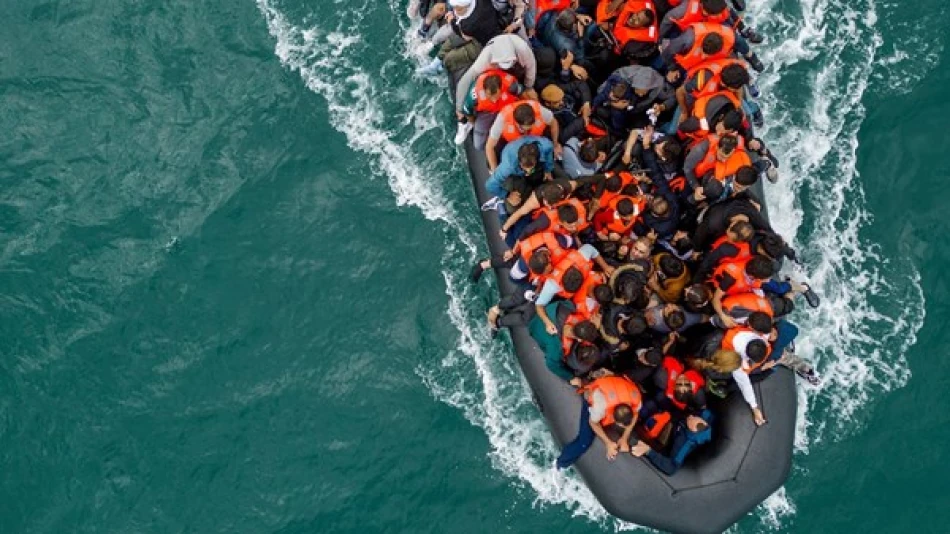
London Implements Landmark Migration Agreement with Paris, Signaling Renewed Cooperation
Britain and France Launch Migrant Swap Deal to Deter Channel Crossings
The UK and France have activated a groundbreaking bilateral agreement that will see migrants who arrive illegally by small boats returned to France, while Britain accepts migrants already on French territory in exchange. The deal, effective Wednesday, represents the most significant shift in Channel migration policy since Brexit and could reshape how European nations handle irregular migration flows.
A New Model for Migration Management
Prime Minister Keir Starmer delivered a stark warning alongside the announcement: "We are sending a clear message today: anyone who arrives in the UK via small boat illegally will be subject to removal to France." The agreement, valid until June 2026, emerged from high-level talks between Starmer and French President Emmanuel Macron during the latter's London visit in early July.
French Interior Minister Bruno Retailleau's office confirmed the formal signing, with European Commission approval described as giving "the green light to this innovative model for deterring illegal immigration." However, operational details remain scarce, including specific numbers of migrants covered under the deportation and reception arrangements.
Addressing a Deadly Crisis
The urgency behind this agreement is underscored by tragic statistics: French Interior Ministry data shows 18 people have died this year attempting to reach the UK via dangerous small boat crossings. These journeys, orchestrated by organized smuggling networks, have become increasingly perilous as authorities crack down on traditional routes.
The Channel crossing crisis has intensified since Brexit eliminated previous EU mechanisms for managing asylum seekers. Unlike the controversial Rwanda deportation scheme abandoned by Starmer's government, this Franco-British arrangement keeps migrants within Europe while attempting to break the business model of people smugglers.
Gradual Implementation Strategy
Home Secretary Yvette Cooper indicated the program will begin with "limited numbers of migrants and expand gradually," suggesting a cautious approach designed to test operational capacity and political palatability. This phased rollout mirrors successful migration partnerships elsewhere, such as Australia's regional processing arrangements, though the UK-France deal maintains migrants' access to European protection systems.
Broader Implications for European Migration Policy
This agreement could serve as a template for other European nations grappling with irregular migration. Unlike unilateral deterrence measures, the swap mechanism acknowledges that migration pressures require coordinated responses between neighboring countries. The deal's success or failure will likely influence similar negotiations across Europe, particularly as the EU develops its new Migration and Asylum Pact.
For investors and businesses, the agreement signals potential stability in UK-France relations after years of post-Brexit tensions. However, the arrangement's limited two-year timeframe suggests both governments remain cautious about long-term commitments, particularly given the political sensitivity of migration issues in both countries.
Testing Political and Operational Limits
The agreement's true test lies in implementation. Previous bilateral migration deals have often faltered on operational complexities, legal challenges, and shifting political priorities. The lack of disclosed numbers suggests both governments are managing expectations while building administrative capacity.
Success will depend on whether the arrangement actually deters crossings or merely displaces them to other routes. Early indicators of effectiveness will include crossing numbers in coming months and the speed at which both nations scale up their exchange mechanisms.
Most Viewed News

 Layla Al Mansoori
Layla Al Mansoori






